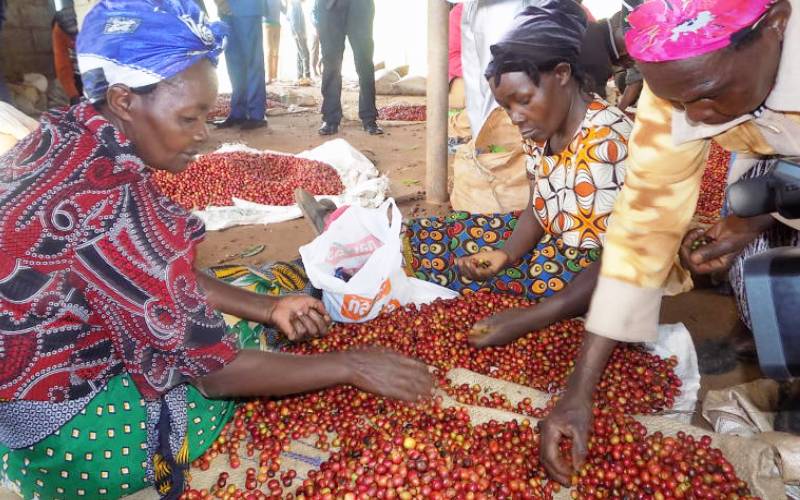×
The Standard e-Paper
Smart Minds Choose Us

Farmers sort out coffee cherry at Murue Coffee Factory in Embu County. New regulations for the cash crop have been released. [File, Standard]
The new coffee regulations have elicited mixed reactions in Mount Kenya region, the cash crop's main producer.